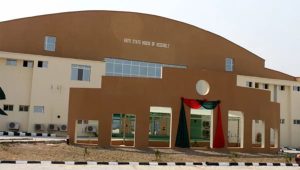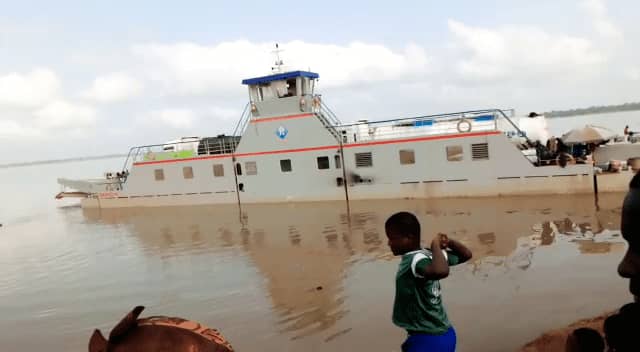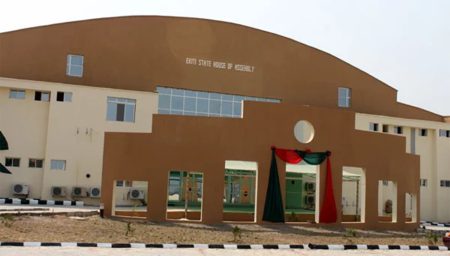The River Oti ferry, a vital transportation link in Ghana’s Krachi East Municipality, has returned to service following a period of repairs, alleviating the travel woes of hundreds of stranded passengers and cargo vehicles. Operated by the Volta Lake Transport Company (VLT), the ferry’s temporary incapacitation due to a technical malfunction had caused significant disruptions to the flow of goods and people across the river, highlighting the vulnerability of the region’s transportation infrastructure and the urgent need for a more permanent solution. The breakdown had led to long queues of vehicles and passengers on both riverbanks, forcing many to endure lengthy delays, impacting businesses, and disrupting daily life for those reliant on the ferry for essential travel. The ferry’s resumption provides a much-needed respite, allowing the backlog of travelers and goods to finally cross the river. However, this temporary fix has underscored the underlying issue of inadequate infrastructure and reignited calls for a more permanent resolution in the form of a bridge.
The temporary nature of the ferry service and its susceptibility to breakdowns necessitates exploring a more reliable and robust alternative. The current reliance on a single ferry creates a bottleneck, making the entire transportation system vulnerable to disruptions caused by mechanical issues, weather conditions, or other unforeseen circumstances. The recent breakdown served as a stark reminder of this vulnerability, leaving passengers stranded and goods immobile. The impact on the local economy and the daily lives of residents underscores the importance of investing in a permanent transportation solution that can withstand such disruptions and ensure a consistent and dependable flow of people and goods. A bridge over the River Oti would eliminate the reliance on a single ferry, creating a resilient and predictable transportation route, promoting trade, and bolstering the region’s economic development.
Passengers who endured the ferry’s downtime have expressed their desire for a more sustainable solution to the region’s transportation challenges. They argue that constructing a bridge over the River Oti would not only eliminate the recurring disruptions caused by ferry breakdowns but also significantly enhance safety and improve the efficiency of travel and trade across the river. The current system, relying on a single ferry, exposes passengers and goods to potential risks associated with water transport. A bridge would provide a safer and more secure passage, minimizing the chances of accidents and ensuring a smoother flow of traffic. Furthermore, a bridge would eliminate the waiting times associated with ferry crossings, streamlining the movement of goods and people, and boosting economic activities in the region. The call for a bridge represents a desire for a more predictable and reliable transportation system that can support the region’s growth and development.
The economic benefits of a bridge across the River Oti extend beyond merely resolving transportation disruptions. A reliable and efficient transportation link is a crucial catalyst for economic growth. A bridge would significantly reduce travel time and transportation costs, facilitating the movement of goods and people, and opening up new markets and opportunities for businesses in the region. The improved connectivity would attract investments, stimulate trade, and create jobs, contributing to the overall economic prosperity of the Krachi East Municipality and surrounding areas. The current reliance on the ferry limits the region’s potential for growth, as businesses face constraints in transporting goods and reaching wider markets. A bridge would remove these barriers, unlocking the region’s economic potential and enabling it to participate more fully in national and international trade.
The social impact of a bridge over the River Oti would be equally transformative. Improved transportation infrastructure plays a crucial role in enhancing access to essential services such as healthcare and education. A bridge would facilitate easier and faster access to hospitals and schools, particularly for those living in remote communities across the river. This improved accessibility would lead to better health outcomes, increased educational opportunities, and enhanced overall quality of life for residents in the region. Furthermore, a reliable transportation link would strengthen social connections and promote cultural exchange between communities on both sides of the river. The bridge would serve as a vital lifeline, connecting communities and fostering greater social integration.
The resumption of the River Oti ferry service is a welcome development, providing much-needed relief to stranded passengers and restoring a vital transportation link in the region. However, this temporary fix only underscores the pressing need for a long-term solution to the region’s transportation challenges. The call for a bridge over the River Oti reflects the aspirations of the community for a more reliable, efficient, and safe transportation system that can support economic growth, improve access to essential services, and enhance the overall quality of life for residents. While the ferry provides a temporary reprieve, the focus must now shift towards investing in a permanent solution – a bridge – that can unlock the region’s full potential and secure its future prosperity. The discussion among stakeholders should center on the long-term benefits of a bridge and the strategic investments needed to make this vision a reality.














